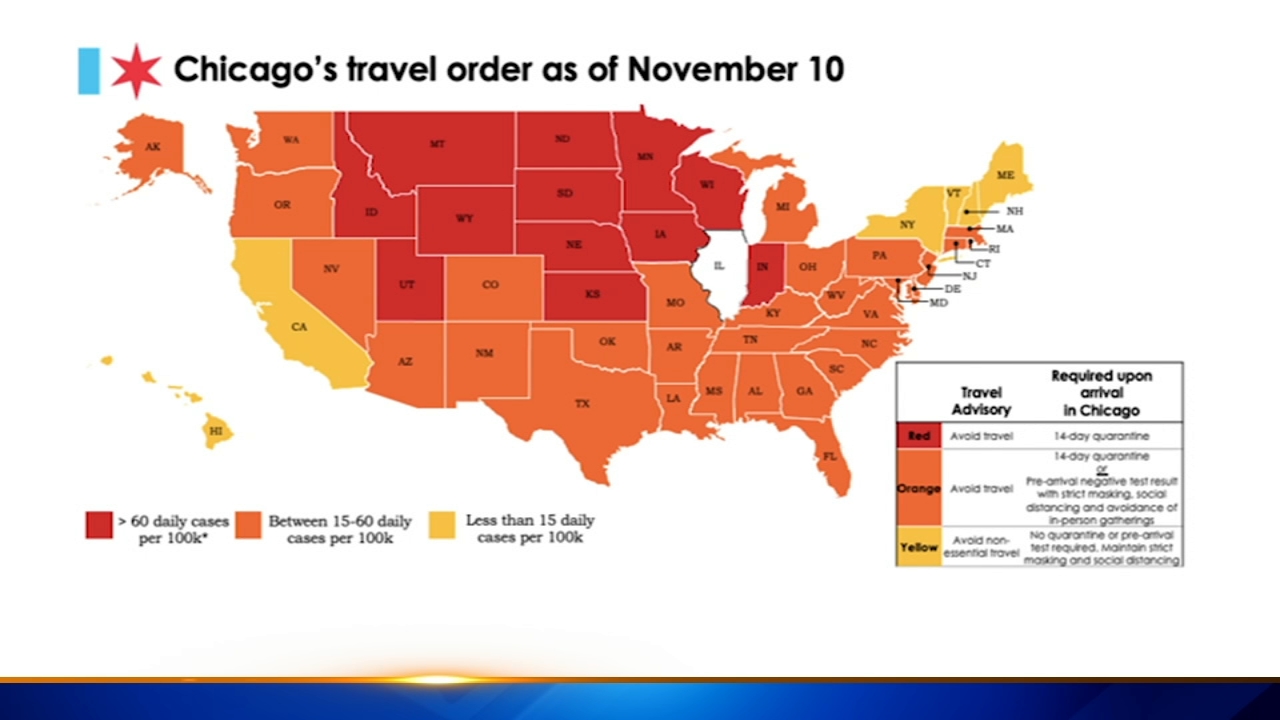Chicago COVID: Stay-at-home advisory extended for city to continue limiting spread of virus

CHICAGO (WLS) -- Chicago's stay-at-home advisory will be extended by nearly two weeks to help continue to limit the spread of the virus, the mayor's office announced Sunday.
Back in November, Mayor Lori Lightfoot, along with the Commissioner of Health for the City of Chicago, Dr. Allison Arwardy, advised all Chicago residents to stay at home in response to the rapid rise of COVID-19 cases and hospitalizations in the city.
The re-issued advisory will take effect Jan. 10 for another 12 days, according to city officials.
Stay at Home Advisory
Residents are advised to only leave their home to go to work or school, or for essential needs -- such as medical care, going to the grocery store or pharmacy, picking up food, or receiving deliveries. City and health officials also advise anyone who does leave their home to always wear a face mask or covering, and to practice social distancing by staying at least six feet away from others in accordance with CDC guidelines.
Additionally, residents are recommended to not have guests in their homes unless they are essential workers, such as home healthcare providers, childcare workers or educators, and to avoid traveling.
Travel Restrictions
The city's emergency travel order will also remain in place, which applies to anyone coming into the city from designated states with a significant degree of community-wide spread of COVID-19. Those traveling from a state on the Orange list must have a negative coronavirus test result no more than 72 hours prior to their arrival or quarantine for a 10-day period. Anyone coming from a state on the Red list must also quarantine for a 10-day period or the duration of their time in Chicago, whichever is shorter. There are no requirements for the yellow states, however, Dr. Arwady said non-essential travel is still not recommended to those states.
Limit on Gatherings
Meeting rooms, banquet centers, party rooms, private clubs, county clubs and other event venues are also prohibited from hosting indoor or outdoor gatherings per the state's tier 3 resurgence mitigations and the city's reopening guidelines. That includes no events in hotel guestrooms or rental properties.
Special events at places of worship, such as weddings, wakes, potlucks and other community events will continue to be limited to 10 people. Funerals are also limited to 10 family members, not including staff.

The limit on gatherings also pertains to private gatherings at residences within the city and cannot exceed six non-household members.
Indoor Service at Restaurants and Bars
Indoor service at restaurants and bars will also remain closed in accordance with Governor JB Pritzker's executive order. All customers eating or drinking on premises must be seated at outdoor tables spaced at least six feet apart, including tables within eight feet of a wall that is at least 50% open. Party sizes cannot exceed six people per table.
Under that state's executive order, non-essential businesses must be closed to the public between the hours of 11 p.m. and 6 a.m.. However, bars, restaurants, and other establishments with proper licensing are allowed to sell alcohol on-site or to-go until 11 p.m. Liquor stores, grocery stores and other establishments with a package goods license must stop selling alcohol at 9 p.m., while restaurants may continue to sell food via delivery, takeout or curbside pickup at all hours.
Shelter in Place When Sick
Above all, residents exhibiting any COVID-19 symptoms must shelter in their place of residence. Officials said they should only leave their residence to seek necessary clinical care, or for essential life-sustaining needs -- such as medicine or food.
COVID-19 symptoms include, but are not limited to, new onset of fever or cough, shortness of breath, congestion or runny nose, sore throat, new loss of taste or smell, body aches, or unusual fatigue, according to health officials.
Doctor offers perspective from front line of COVID-19 battle















